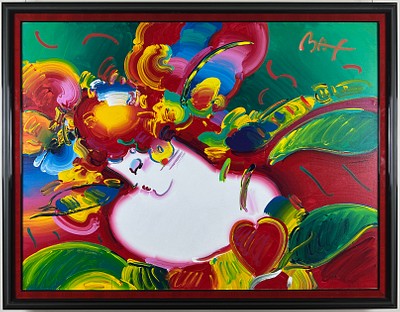Bridget Riley "Paean, 1973" Offset Lithograph
Lot 848
Categories
Estimate:
$200 - $400
Absentee vs Live bid
Two ways to bid:
- Leave a max absentee bid and the platform will bid on your behalf up to your maximum bid during the live auction.
- Bid live during the auction and your bids will be submitted real-time to the auctioneer.
Bid Increments
| Price | Bid Increment |
|---|---|
| $0 | $5 |
| $100 | $10 |
| $200 | $20 |
| $1,000 | $50 |
| $5,000 | $100 |
| $10,000 | $200 |
About Auction
By Scottsdale Art Exchange
Jul 29, 2023
Set Reminder
2023-07-29 12:00:00
2023-07-29 12:00:00
America/New_York
Bidsquare
Bidsquare : Our Annual Midsummers Day Auction
https://www.bidsquare.com/auctions/scottsdale-art-exchange/our-annual-midsummers-day-auction-13196
This auction will feature 900 amazing items. The Auction will include 300 items for our fine art gallery and over 600 items from our consignment partners. Scottsdale Art Exchange sue@firerockfineart.com
This auction will feature 900 amazing items. The Auction will include 300 items for our fine art gallery and over 600 items from our consignment partners. Scottsdale Art Exchange sue@firerockfineart.com
- Lot Description
Bridget Riley is a British artist known for her pioneering contributions to Op art, short for Optical art. She was born on April 24, 1931, in London, England. Riley's works are characterized by their geometric patterns, precise compositions, and optical illusions that create a sense of movement and visual vibrations. In the early 1960s, Riley emerged as a prominent figure in the Op art movement, which explored the visual effects of optical illusions and perceptual phenomena. She experimented with various techniques, such as contrasting black and white lines, repetition, and color interactions, to create mesmerizing visual experiences. Riley's paintings often employ simple geometric shapes, such as squares, rectangles, and circles, arranged in intricate patterns. These patterns produce optical effects that can create the illusion of movement, depth, or pulsation, captivating the viewer's perception. Her groundbreaking work challenged traditional notions of painting and perception, emphasizing the viewer's active engagement with the artwork. Riley's art aimed to elicit an immediate and visceral response, exploring the dynamic relationship between color, form, and visual perception. Over the years, Riley's work has expanded to include a variety of media, including prints, murals, and even architectural commissions. She has received numerous awards and honors for her contributions to art, including the International Prize for Painting at the Venice Biennale in 1968 and the Praemium Imperiale in Painting in 2003. Bridget Riley's art continues to be exhibited worldwide, and her influence on contemporary art and the Op art movement is widely recognized. Her works can be found in major museums and collections around the world, and she is regarded as one of the most important and influential artists of the 20th and 21st centuries.
Measures 18 x 18.Good condition. No rips, tears, creases.Condition
- Payment & Auction Policies
-
Available payment options
-
-
- Buyer's Premium



 EUR
EUR CAD
CAD AUD
AUD GBP
GBP MXN
MXN HKD
HKD CNY
CNY MYR
MYR SEK
SEK SGD
SGD CHF
CHF THB
THB
























